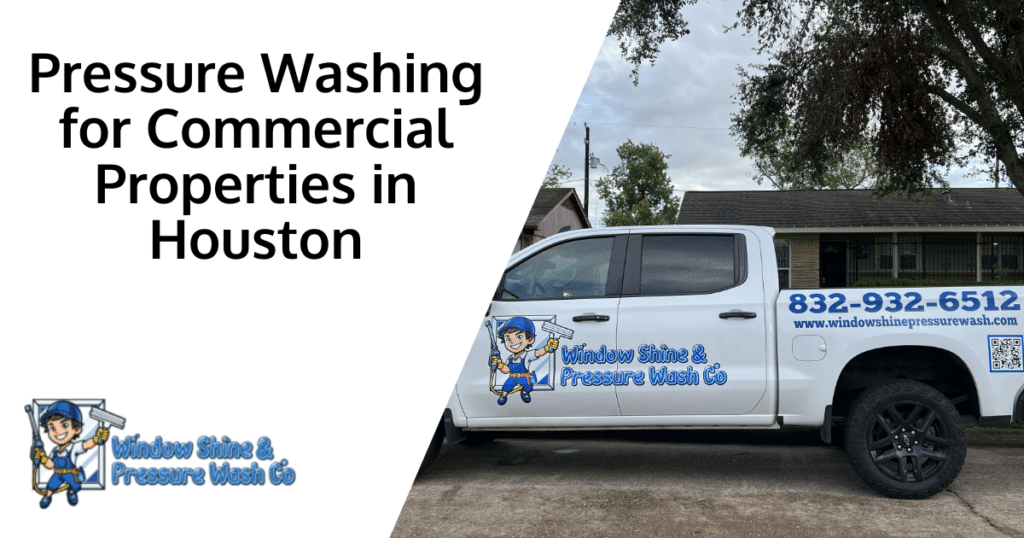washing technology and how they have impacted the industry.
Word count: 250-350
Understanding the Importance of Pressure Washing for Commercial Properties
Pressure washing is a fundamental aspect of the maintenance routine for commercial properties. It offers a practical and efficient way to clean and maintain the aesthetic appeal and structural integrity of buildings. Regular pressure washing is also a protective measure, safeguarding the physical structures from damaging elements like dirt, mold, and pollutants. Every commercial building, whether an office complex, retail store, or restaurant, benefits from this cleaning technique, maintaining a clean and refreshing look that enhances its attractiveness to customers and clients.
The Role of Pressure Washing in Property Maintenance
In property maintenance, pressure washing plays a dual role. It helps maintain the aesthetic appeal of the property, giving it a clean and welcoming look. At the same time, it also aids in maintaining the structural integrity of the buildings. Regular pressure washing keeps destructive elements like mold and pollutants at bay, thereby reducing the risk of damage to the buildings.
Benefits of Pressure Washing for Commercial Buildings
Commercial properties stand to benefit immensely from pressure washing. This cleaning technique significantly boosts curb appeal, creating a lasting impression on clients and passersby. Moreover, a well-maintained property tends to have a higher value in the real estate market, another key advantage that stems from regular pressure washing.
From a safety perspective, removal of mold, fungi, and other slippery substances by pressure washing can mitigate the risk of falls and injuries on the premises. Furthermore, pressure washing is an effective way to keep the building’s external surfaces in good condition, potentially saving energy that would otherwise be wasted on inefficient heating or cooling due to poor insulation.
Key Elements of Effective Pressure Washing
Understanding Pressure Washer Types and Specs
Effective pressure washing is dependent on selecting the right type of equipment. Pressure washers can be categorized mainly into four types: electric models, gas models, hot water models, and cold water models. The choice depends on the cleaning requirement, with each model offering specific benefits.
In understanding pressure washer specifications, two critical terms come into play: PSI (pounds per square inch) and GPM (gallons per minute). PSI refers to the pressure with which the water is sprayed, useful in dislodging dirt and grime. In contrast, GPM represents the volume of water that the machine can release per minute, dictating the speed at which the cleaning process takes place.
Choosing the Right Pressure Washing Services
Choosing the right pressure washing service is another essential element. While assessing a service provider, focus on their experience, the equipment they use, and their customer reviews. Other factors to review include their insurance coverage, the environmental efforts they follow, and their service guarantees – all crucial aspects ensuring the service is trustworthy and worth investing in.
Applications and Techniques in Commercial Pressure Washing
Pressure Washing Techniques for Different Surfaces
The techniques used in pressure washing depend on the type of surface being cleaned. For robust surfaces like concrete and brick, high-pressure washing can be effective. However, delicate surfaces like glass might require lower pressures and the application of certain cleaning agents. The type of cleaning agents used should also be environmentally safe, ensuring that the washing process does not impede environmental conservation efforts.
Common Challenges in Pressure Washing
Like any other process, pressure washing can present some challenges. These include potential surface damage through incorrect washing procedures, harmful chemical runoff, and chances of inadequate cleaning. Knowing how to troubleshoot these issues, such as using correct pressures and eco-friendly cleansers, is essential to ensure successful, efficient, and responsible cleaning.
Professional vs. DIY Pressure Washing
Comparing Costs and Outcomes
Many property owners battle between hiring a professional cleaning service and handling the cleaning themselves. Both approaches have distinct cost aspects and outcomes that need to be evaluated. This comparison should factor in the investment in equipment and the time commitment required by a do-it-yourself option against the professional expertise, efficiency, and service guarantees offered by professional cleaning services.
The Evolution and Trends in Pressure Washing Technology
Pressure washing technology has seen significant advances over the years, with improvements mainly aimed at enhancing the effectiveness and efficiency of cleaning operations. Factors driving these advancements include the need for eco-friendly cleaning solutions and the incorporation of automation in the cleaning process. Keeping an eye on such trends can help property owners and cleaning services adapt and maximize the benefits obtained from pressure washing.

